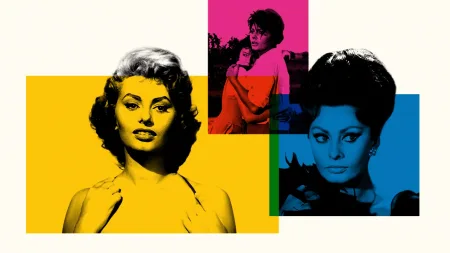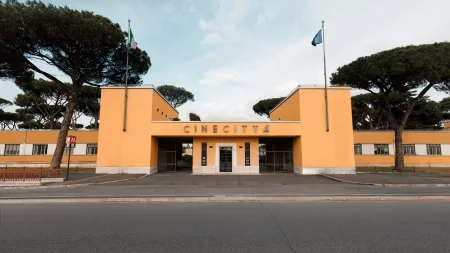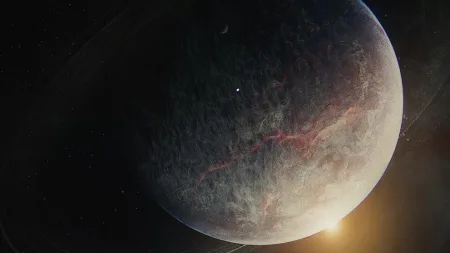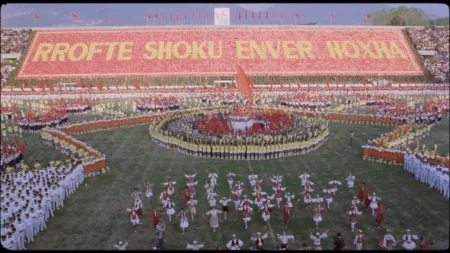25 July 2025
‘Elvira Notari: Oltre il Silenzio’ in Venice Classics
Valerio Ciriaci’s film, co-produced by Luce Cinecittà, uncovers the enigmatic life of a cinema pioneer

Valerio Ciriaci’s film, co-produced by Luce Cinecittà, will screen in the Documentaries on Cinema section of the Venice Classics, and will be tracing the life and legacy of Italy’s first female director.
Just three feature films, two short documentaries, and a few fragments, totaling 163 minutes, are all that remain of Elvira Notari’s filmography, the first female director in Italian cinema.
While her life remains partly enigmatic (she left behind no letters or diaries, and only a few photographs), her work has recently drawn renewed interest after decades of obscurity. A leading figure in the golden age of Neapolitan silent cinema, Elvira created around 60 feature films that blended popular culture with an authentic lens on city life, captivating audiences from Naples to the Little Italy suburbs spread around the United States. With the advent of sound and increasing pressure from Fascist censorship, she abandoned filmmaking in 1930. Her work faded into silence, and much of her output was lost.
Today, 150 years after her birth, Elvira returns to the spotlight thanks to the efforts of scholars and artists who are reclaiming and reinterpreting her legacy through new creative works. Weaving together historical memory and contemporary rediscovery, Elvira Notari. Oltre il silenzio offers a vivid, multifaceted portrait of a cinema pioneer whose voice is once again echoing in the present and will be premiering in the Venice Classics – Documentaries on Cinema section. Valerio Ciriaci’s film is produced by Luce Cinecittà, Parallelo 41, and Awen Films.
Ciriaci explained: “I first came across Elvira Notari’s story a few years ago in New York, while working on a documentary about an Italian showman who had emigrated to the U.S., and the Italian audiences that packed American cinemas in the early 20th century. Among the most requested films by the Italian-American community were silent Neapolitan productions, especially those from Dora Film, a small family-run company headed by Elvira Notari herself. Her films, with their direct language rooted in popular culture, held their own against the grand epics of the major production houses in Turin and Rome.
I began to dig deeper, fascinated by her figure and the more I explored, the more her allure grew. Paradoxically, it was enhanced by her elusiveness: just one surviving photograph, three extant films, and a handful of direct accounts. I was struck by how she had been sidelined, first by the Fascist regime that censored her films, then by official film histories that ignored her contributions, until scholars like Giuliana Bruno, Vittorio Martinelli, and Mario Franco began to revive her importance in the 1970s.
My research eventually led me to Naples, where in 2023 I met producer Antonella Di Nocera, who had long dreamed of making a film about Elvira to restore her rightful place in cinema history. From that meeting, the project began to take shape, unfolding along a Naples–New York axis and involving major film archives in Italy and the U.S. in the search for missing fragments of the director’s life and work.
During filming, we realized that our interest in Elvira was part of a broader phenomenon: many contemporary women artists were rediscovering her legacy through a range of expressive forms, from historical fiction to photography, music, and collective embroidery workshops. Gradually, the project expanded to include these voices, who see in Elvira a figure that inspires new narratives. The gaps in her biography, rather than limitations, became creative opportunities, chances to explore what lies beyond official records and histories.
Around Elvira’s legacy, a true community has formed, united by a passion for her work and a shared act of rediscovery. From ghost at the margins of film history, she has re-emerged as a vibrant presence that transcends the silent era. Our film aims to be a catalyst for this energy: an invitation to rediscover Elvira and to explore how the power of shared memory can not only reshape our view of the past, but also open up new expressive possibilities.”
In the same section, the previously announced restoration of Luciano Salce’s I Married You for Fun (Ti ho sposato per allegria) will also be presented.



